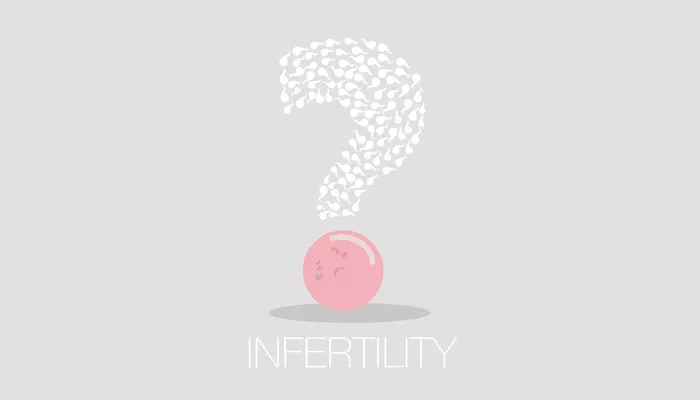Endometriosis is a chronic medical condition that affects millions of women worldwide. It occurs when tissue similar to the lining of the uterus grows outside the uterine cavity. This misplaced tissue can lead to inflammation, pain, and various digestive issues.
One of the most common but often overlooked symptoms of endometriosis is bloating. Many women experience severe bloating, sometimes called “endo belly,” which can be uncomfortable and frustrating. The swelling can be so pronounced that it mimics pregnancy, making daily activities difficult.
This article explores the connection between endometriosis and bloating. It explains why endometriosis leads to digestive discomfort, what other symptoms may accompany bloating, and how to manage this condition effectively.
Why Does Endometriosis Cause Bloating?
Bloating in endometriosis is caused by a combination of inflammation, hormonal fluctuations, and digestive disturbances. The severity of bloating varies from woman to woman and may worsen during certain times of the menstrual cycle.
Inflammation and Swelling
One of the main reasons endometriosis causes bloating is inflammation. The misplaced endometrial tissue acts like the uterine lining, thickening and shedding during each menstrual cycle. Since this tissue is outside the uterus, the body responds with an inflammatory reaction.
This inflammation can cause swelling in the abdomen, leading to bloating and discomfort. Some women also experience tenderness or pressure in the stomach area, making it difficult to wear tight clothing or eat large meals.
Hormonal Imbalances
Endometriosis is a hormone-sensitive condition. Estrogen plays a significant role in the growth and development of endometrial tissue. When estrogen levels fluctuate, the tissue can expand, causing increased swelling and bloating.
Many women with endometriosis report that their bloating worsens before or during their menstrual period, when estrogen levels peak. Hormonal birth control or hormone therapy may help reduce bloating by stabilizing estrogen levels.
Digestive System Involvement
Endometriosis can affect the digestive system, leading to symptoms such as bloating, constipation, and diarrhea. The misplaced tissue can attach to the intestines, causing irritation and slowing digestion.
Many women with endometriosis are also diagnosed with irritable bowel syndrome (IBS), a condition that causes bloating, cramping, and irregular bowel movements. The overlap between endometriosis and IBS can make it difficult to determine the exact cause of bloating.
Other Symptoms That Accompany Bloating
Bloating is rarely the only symptom of endometriosis. Most women experience other discomforts, especially during menstruation.
Pelvic Pain
Pelvic pain is the most common symptom of endometriosis. The pain may be sharp, stabbing, or dull and achy. It can occur before, during, or after menstruation and may worsen over time.
Heavy Menstrual Bleeding
Many women with endometriosis experience heavy or prolonged menstrual bleeding. This can lead to fatigue, weakness, and anemia, further affecting overall health.
Fatigue and Low Energy
Chronic inflammation and pain can lead to exhaustion. Women with endometriosis often feel fatigued, even after a full night’s sleep. Bloating can also contribute to tiredness by making digestion less efficient.
Painful Bowel Movements
If endometriosis affects the intestines, bowel movements may become painful. Some women also experience constipation or diarrhea, especially around their menstrual period.
When Is Bloating a Sign of Endometriosis?
Bloating is a common symptom in many digestive conditions. However, certain characteristics make bloating more likely to be linked to endometriosis.
Severe and Prolonged Bloating
While occasional bloating is normal, bloating from endometriosis can last for days or weeks. It often worsens before menstruation and does not completely resolve after eating or passing gas.
Accompanied by Pelvic Pain
If bloating is associated with pelvic pain, it may indicate endometriosis. Many women report that their stomach feels tender or sore when bloating occurs.
Resistant to Dietary Changes
Most cases of bloating improve with dietary adjustments, such as reducing gas-producing foods. However, bloating caused by endometriosis may persist despite changes in diet.
How to Manage Endometriosis-Related Bloating
Bloating from endometriosis can be distressing, but several strategies can help reduce discomfort and improve quality of life.
Anti-Inflammatory Diet
Since inflammation plays a major role in bloating, an anti-inflammatory diet can help. Eating whole foods, leafy greens, lean proteins, and healthy fats may reduce swelling and improve digestion.
Reducing Estrogen Exposure
Limiting foods that increase estrogen, such as processed meats and dairy, may help control bloating. Some women benefit from reducing alcohol and caffeine intake, as these substances can affect hormone balance.
Hydration and Gut Health
Drinking plenty of water and consuming fiber-rich foods can promote digestion and prevent constipation, reducing bloating. Probiotics may also support gut health and alleviate digestive issues.
Regular Exercise and Movement
Gentle exercises, such as walking or yoga, can help improve circulation and reduce fluid retention. Movement also supports digestion, preventing bloating caused by sluggish bowel function.
Medical Treatment Options
If bloating is severe, a doctor may recommend hormonal therapy, such as birth control pills or GnRH agonists, to regulate estrogen levels. Pain medications and anti-inflammatory drugs may also provide relief.
When to See a Doctor
Bloating caused by endometriosis can be mistaken for other conditions, such as ovarian cysts, IBS, or food intolerances. If bloating is persistent, painful, or accompanied by severe pelvic discomfort, it is essential to seek medical evaluation.
A doctor may perform imaging tests, such as an ultrasound or MRI, to look for signs of endometrial tissue growth outside the uterus. In some cases, laparoscopy, a minimally invasive surgical procedure, may be needed for a definitive diagnosis.
Conclusion
Endometriosis can cause significant bloating, leading to discomfort and frustration for many women. This bloating is often due to inflammation, hormonal fluctuations, and digestive disturbances.
Managing endometriosis-related bloating requires a combination of lifestyle changes, dietary adjustments, and medical treatments. Understanding the link between bloating and endometriosis can help women find relief and improve their overall well-being.
If bloating becomes severe or persistent, seeking medical attention is crucial. A proper diagnosis and treatment plan can help reduce symptoms and enhance quality of life for those living with endometriosis.
Related topics:
Can Endometriosis Cause Depression?























